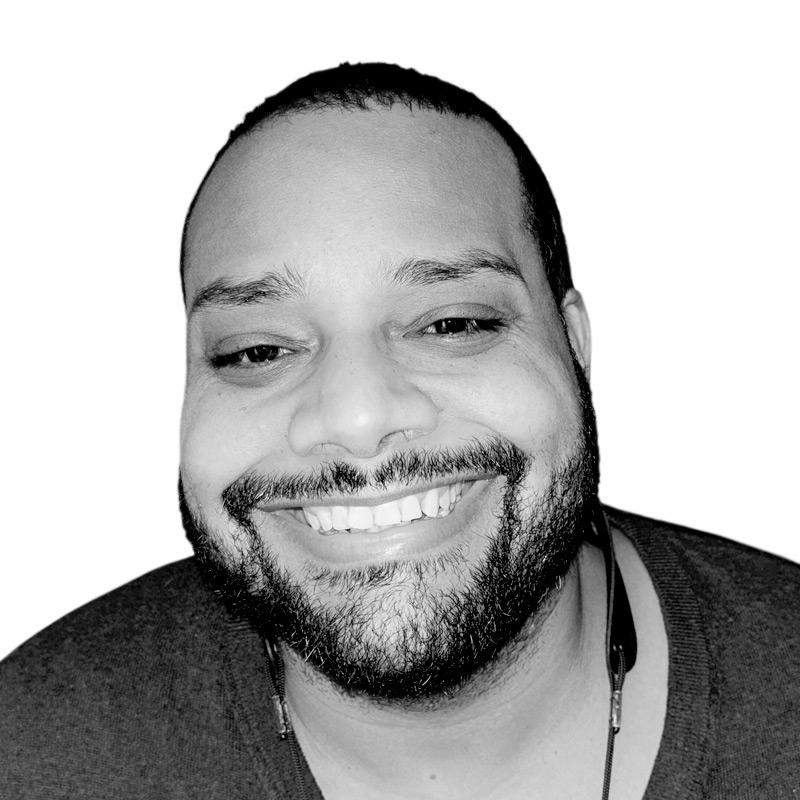Hip-hop’s Trump Card
Rap is historically defined by its politics. This year is no different: Pusha T, Killer Mike, and YG have made their voices heard in an election year when artists from other genres have remained silent.
There’s an old story about how Eazy-E once had “dinner with the president.” The popular, embellished version has it that Eazy visited the White House to troll President Reagan. In fact, the meeting took place during the single term of George H.W. Bush, when Republican senators Phil Gramm and Bob Dole invited Eazy to a luncheon at the Omni Shoreham Hotel in Washington, D.C. There, the N.W.A member sat among Republican lawmakers and wealthy campaign donors, including Arnold Schwarzenegger, as part of a fundraising tier called the Republican Senatorial Inner Circle. Eazy made headlines on the strength of the invitation, which was reportedly mailed to him due to an administrative oversight, but he made no great statement at the event itself or afterward. Presumably, Eazy-E just sat there, listened, and smirked.
That was 1991. Institutions at every level of American life had only just begun to declare war on hip-hop. The LAPD and FBI dogged N.W.A in response to the group’s pro-black, anti-police rhetoric. The U.S. 11th Circuit Court of Appeals weighed the merits of “obscenity” in 2 Live Crew’s music. It was a year before Arkansas Governor Bill Clinton, the 1992 Democratic presidential nominee, would repudiate the black activist Sister Souljah’s radical music and rhetoric as basically indistinguishable from the politics of the Louisiana white supremacist agitator David Duke. Naturally, the genre developed an allergy to formal politics, with attitudes ranging from skepticism to broad contempt. Par for the course with youth movements, sure. But unlike rock — which is more traditionally privileged and allows for a more diverse set of interests from its musicians — hip-hop is, first and foremost, the language of a nigh-permanent underclass. In the 1980s, rappers illuminated the crack epidemic and challenged the War on Drugs. In the 1990s, they fought censorship. In the 2000s, they fought the president, George W. Bush. In the 2010s, several rappers have trained their art against police brutality, aligning themselves with a civil rights movement by way of Black Lives Matter. In any given decade, rappers have reliably addressed a mix of all these concerns and more. This year, the agenda reads like this:
- Fuck the police.
- Fuck Donald Trump.
But music is no longer the singular means for rappers to help achieve these ends. As hip-hop has become the lingua franca of American pop culture in the past decade or so, rappers are joining the mainstream of political engagement. Just eight years ago, when even Barack Obama’s hometown pastor, the Reverend Jeremiah Wright, proved too radical for Fox News, it would’ve been comedy to imagine Pusha T as a celebrity surrogate for the Democratic nominee. Yet here we are, in the final stretch of an election year that has seen rappers doing more than any other class of entertainers to beat the drum of political activism.

Vote or Die was hip-hop’s big foray into voter mobilization and formal political coordination at the national level. Launched in 2004, Vote or Die was a grassroots “movement” that was actually just the slogan of a group called Citizen Change, now inactive, which Sean “Puffy” Combs founded to help John Kerry defeat President Bush. Alas.
Ultimately, despite its national visibility and notable cosigns from the likes of Leonardo DiCaprio, Mariah Carey, and 50 Cent, Vote or Die played out as something of a joke, now remembered more for Puffy’s gaudy and erratic promotion of the cause and for the spoofs that it spawned than for its modest impact on youth turnout. The campaign was bland and nominally nonpartisan in its official cause. Also, despite its motto, Vote or Die was nonthreatening whereas N.W.A once made politicians fear new extremes of provocative speech. Less than a year after President Bush won reelection, Hurricane Katrina devastated New Orleans. FEMA botched the rescue efforts, after which Kanye West made his famous telethon declaration: “George Bush doesn’t care about black people.” That was the bitter end of hip-hop’s brief drive toward optimism at the federal level.
In 2008, Barack Obama reinvigorated that optimism about black political representation when he first ran for the presidency — and won. It’s impossible to understate how polarizing the Illinois senator’s race and heritage were among the the general electorate; fearful white conservatives cast him as a deep-cover Muslim agent of American decline, while black voters came to regard Obama as the fateful realization of a wish for “the first black president,” a title that was once so fanciful that Toni Morrison previously bestowed it upon Bill Clinton, of all people. Jeezy, Nas, and Will.i.am wrote odes to Obama’s candidacy. Jay Z and Beyoncé didn’t just raise money for both of his presidential campaigns, Jay basically remade himself in Obama’s image. A week after the president reversed his previous opposition to marriage equality in a May 2012 interview with ABC News, Jay echoed his stance: “It’s no different than discriminating against blacks,” he told CNN. “It’s discrimination plain and simple.” In his second term, President Obama has regularly hosted famous rappers at the White House. Kendrick Lamar, Chance the Rapper, Pusha T, and several others have paid a social call or two to the president and his senior advisers to discuss public education and criminal justice. Unlike Senator Dole’s clueless invitation to Eazy-E, Obama’s hip-hop outreach has been rather deliberate, inclusive, and inspiring.

In 2016, a few rappers joined in the American political process like never before. Killer Mike campaigned for Bernie Sanders in the Democratic primary, introducing the senator at major rallies and occasionally speaking to the press on behalf of his campaign. Jay Z is scheduled to headline a “Get Out the Vote” concert in Ohio on November 4, four days before the election. Meanwhile, Pusha T — who has dubbed himself a “cocaine superhero,” to the horror of conservative detractors — introduced Hillary Clinton’s running mate, Tim Kaine, also his home-state senator, at a “block party” rally in Miami. “I remember being young and being desensitized to so much,” the rapper told Business Insider. “I was so desensitized to things that were happening within street culture, whether it was jail, whether it was death … with age I’ve become re-sensitized to it.”
If there is any political possibility that might re-sensitize an otherwise disenfranchised group of voters so dramatically, it’s the following one-two punch: a new flash point in civil rights history that just so happens to coincide with the nativist, reactionary Republican presidential candidacy of Donald Trump. For all the Boondocks-style handwringing about how hyper-materialistic hip-hop became under the Southern dominance of the ’00s, rappers have only grown more active in electoral politics and political discourse as the 21st century rolls on.
Trump is a dramatic threat to women, blacks, Mexicans, Muslims, and other marginalized American demographics, and he’s a dark demagogue overall. He isn’t embarking on a campaign so much as “a concert tour,” as one disgruntled GOP operative has described his operation. In turn, the rapper YG has launched his own “Fuck Donald Trump” concert tour, named after the election season’s definitive protest record. YG recruited Nipsey Hussle, Macklemore, and G-Eazy to rap on two different versions of the song, and he partnered with Genius to reimagine the original version as a campaign attack ad released shortly after Trump unofficially clinched the Republican nomination.
The politics of a genre run deeper than its protest records; much of YG’s music is thoughtful and critical whether or not it’s explicitly partisan. His latest album, Still Brazy, is an extended meditation on gang tensions and oppressive interactions with police. In his song “One Time Comin’,” YG narrates a high-speed flight from the cops — a theme of countless, “mindless” gangster rap tunes from Eazy-E through Eminem, Boosie, and Gucci Mane. The difference now is that America is under the flashy and surreal threat of Donald Trump’s know-nothing conservatism, which categorically identifies brown immigrants as threats and black communities as blights. “We got a voice, too,” YG raps on “FDT.” “We will be seen, and we will be heard.”

If you’ve ever attended a U.S. political rally, you will have learned the following stock chant:
“What do we want?”
“_______!”
“When do we want it?”
“Now!”
Politics is full of such flat demands, sometimes righteous, sometimes underexamined and half-baked. To wit: It’s tough to pinpoint why we should even care so thoroughly about the political convictions of celebrity entertainers. If they’re not particularly insightful or forthcoming about public affairs, it’s unclear what, exactly, we should want from them. A few weeks ago, Fusion published an essay with the headline “It’s time for Taylor Swift to say something about Donald Trump,” in which the writer Kelsey McKinney grapples with the contradiction of the pop singer’s private autonomy, on the one hand, and the fanatical demand for her to denounce Donald Trump — a presidential candidate whom Swift may very well support, for all we know — on the other. Swift, the daughter of wealthy parents who worked in finance, is quite possibly a Republican; most certainly, she sits atop a musical genre with no great claim to political conviction on any fundamental level. She’s just doing her job.
Hip-hop, conversely, is more so a movement. As stylistically splintered and as globally inclusive as the genre has become, its roots have always been rhythm, humor, resistance, and critique. When Kendrick Lamar released To Pimp a Butterfly in March 2015, much of the album’s immediate acclaim cited his enraged, compassionate songwriting as profound evidence that contemporary hip-hop — severed from N.W.A and 2Pac by the turn of a century — is still uniquely capable of political might, intellectual disruption, and meaningful, passionate provocation on behalf of black people.
More than two decades after Eazy-E crashed the Republican inner circle, it’s clear that many rappers are no longer content with being bystanders to formal politics — though they’re still an awkward fit. In 2013, Lupe Fiasco booked a performance during the night of President Obama’s second inauguration, only to seize the concert stage for 30 minutes to criticize U.S. foreign policy with a song. Lupe ingratiated himself into the confines of power, and he voiced his dissent until event staff escorted him from the stage. In 2016, Killer Mike defied similar rage and cynicism to support the insurgent cause of Senator Sanders, only to find himself in a war of ill-advised words with the political class and supporters of the so-called “establishment” candidate, who prevailed in the Democratic primary. Killer Mike’s guy did not win. But Killer Mike said his piece. Let the record reflect that the only advocate on Bernie’s campaign louder than the candidate himself himself was a big, bad Atlanta rapper.

